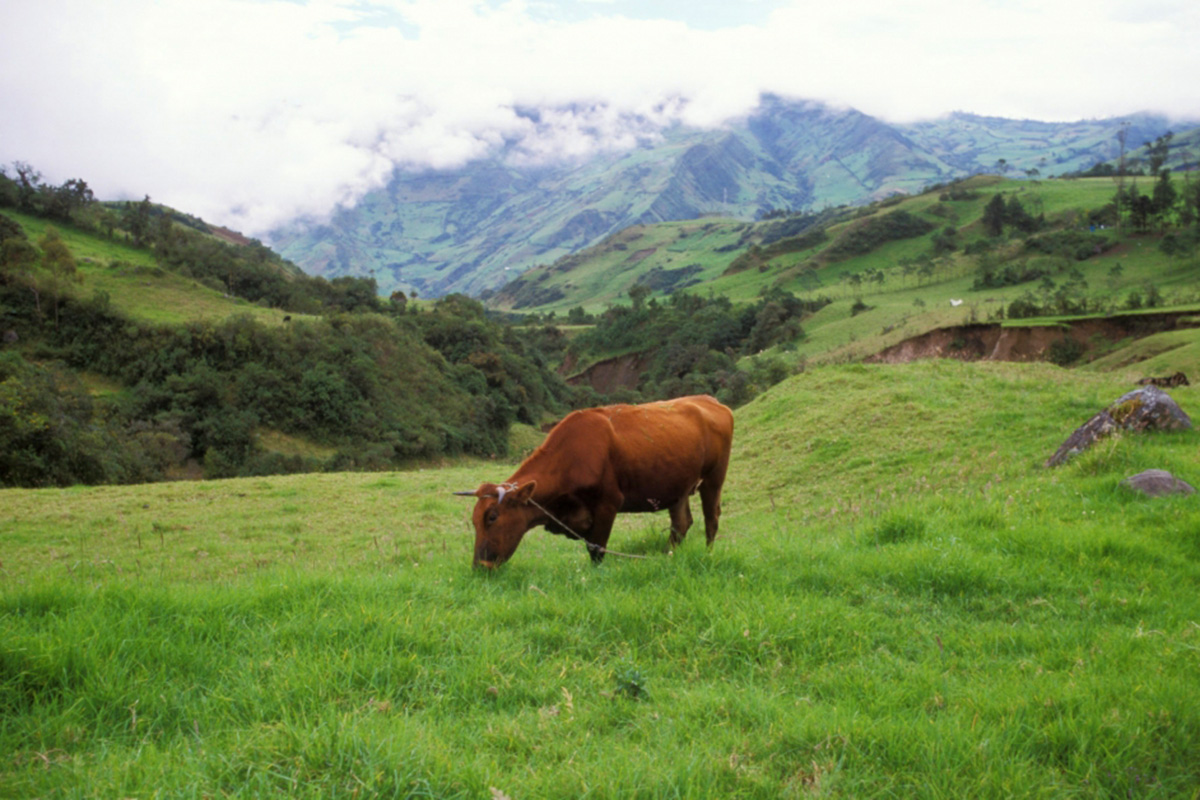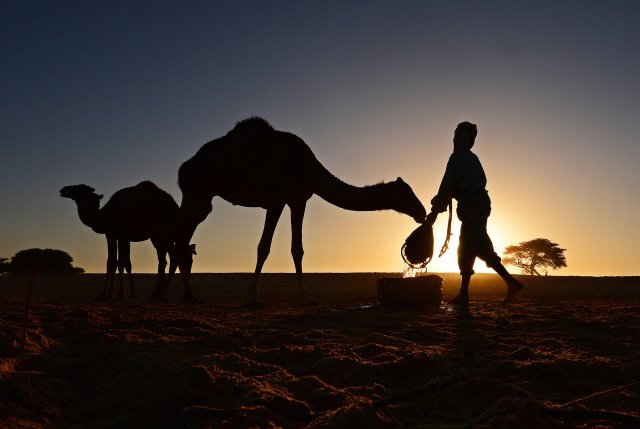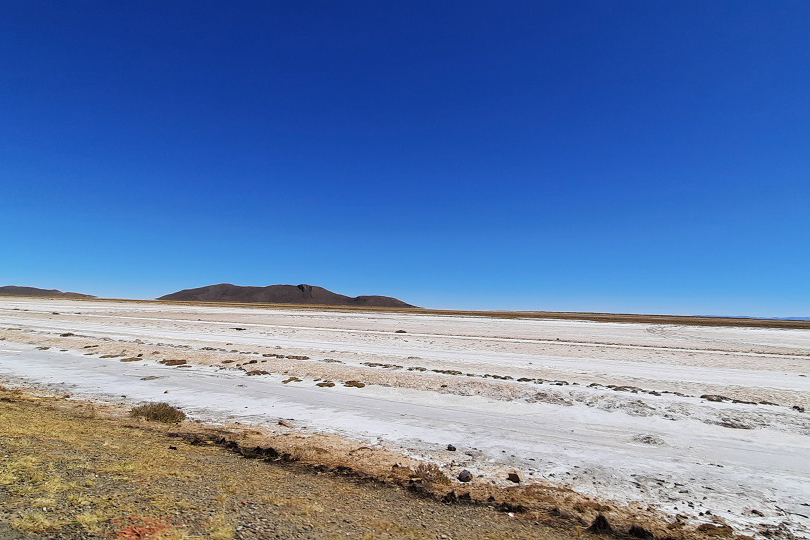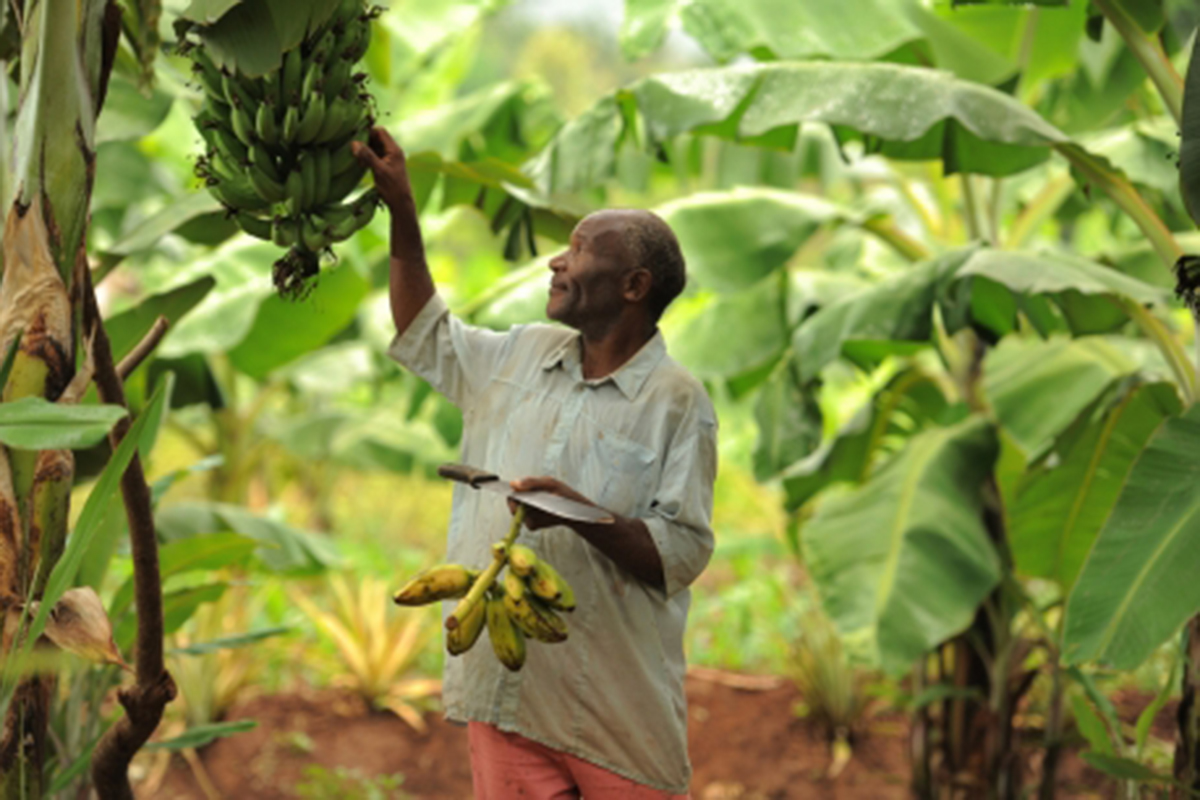When we see the news reports on climate change, it often includes footage of factory chimneys and traffic jams. We may or may not realize that agriculture is also a key contributor. In fact, greenhouse gas (GHG) emissions from agri-food sectors represent around 34 percent of total GHG emissions. In response, FAO is ramping up its work to better respond to the climate crisis. One way of doing this is by spreading the use of green and climate-resilient agricultural techniques, which can help to reduce the negative impacts from the way our food is produced and reaches our plates.
FAO
To build a happy and healthy world, the Trolls want you to become a food hero too, so #ActNow! For the International Year of Fruits and Vegetables, the Trolls are joining forces with the United Nations, the UN Food and Agriculture Organization (FAO) and the UN Foundation to raise awareness of the important role of fruits and vegetables in creating a happy and healthy planet.
The United Nations has proclaimed 2022 as the International Year of Artisanal Fisheries and Aquaculture (IYAFA 2022), with the FAO serving as the lead agency. IYAFA 2022 will be an opportunity to celebrate the diversity of small-scale artisanal fisheries and aquaculture, including women and youth; to share the current and potential contributions to achieving the Sustainable Development Goals and highlight related innovation; and to build and strengthen related support and partnerships at all levels.
By working with nature, pastoralism, the time-tested form of raising and breeding livestock, champions productivity, sustainability and animal welfare.
The comforting aromas of tea and coffee unite people all over the world. These beverages are more than just a brew, they embody hundreds of years of knowledge that spans across generations. Tea and coffee are linked to many potential health benefits, as mounting scientific evidence has shown.
To millions of farmers in the poorest parts of the world, however, tea and coffee represent a source of income, livelihoods and a ladder out of poverty. They also contribute to transforming our agri-food systems towards sustainability and resilience. These billion-dollar industries fuel entire economies. Smallholder farmers and farming households are at the forefront of these sectors, producing 60% of the global tea supply and 80% of the coffee supply.
To learn more about tea and coffee, visit:
- FAO Markets and Trade
- WORLD FOOD DAY 2021 (WFD 2021)
- WFD 2021 Side event: Dialogue on Tea and Coffee - A talk show-style dialogue that explores the cultural significance and economic importance of tea and coffee (watch here)
While human activity has already influenced the climate, there are opportunities to mitigate its effects on Planet Earth. Back in April, four astronauts, including FAO Goodwill Ambassador Thomas Pesquet, travelled into space. They carried out a series of scientific experiments set to contribute to the fight against climate change and support global food security.
Producers: Charlotta Lomas, Anais Hotin, Marina Sánchez Castelo.
Presenter: Charlotta Lomas, FAO.
Photo credit: © ESA / NASA.
Sound effects provided by ESA and NASA.
What did you dream of becoming when you were a child?
An astronaut?
A firefighter?
A veterinarian?
Today, 160 million children are trapped in child labour. Most of them in agriculture.
We need to #StopChildLabour so all children can work on their dreams.
FAO and the Arbor Day Foundation started the Tree Cities of the World programme, a collaborative effort to encourage cities and towns around the globe to invest in, properly maintain and sustainably manage urban forests and trees. 2019 was the first year of eligibility for this worldwide initiative and 68 cities from 17 countries were recognised for their commitment to urban forestry. The programme has since almost doubled and now includes 120 cities from 23 countries.
“Our actions are our future and the future is in our hands! We can all become food heroes Do it for the people, do it for the land!” The song created for FAO’s Food Heroes campaign was written and produced by Garry McCarthy. Music & video produced by GMCBeats at The Kabin Studio. Lyrics performed by children in Armenia, Cameroon, Chile, China, Ireland & Lebanon.
Before food reaches our plates, it travels a long way. FAO illustrates how every stage of that journey makes up our agri-food systems. Farming, fishing, livestock-rearing, storing, transporting, selling, buying, eating, and disposing of our food are all part of these complex systems. The systems also include all the non-food products that come from agriculture, like cotton and forest products. Our actions and choices can help these systems become more sustainable.
FAO has launched the Global Map of Salt-Affected Soils, a key tool for halting salinization and boosting productivity. The map estimates that there are more than 833 million hectares of salt-affected soils around the globe (8.7% of the planet). Most of them can be found in naturally arid or semi-arid environments in Africa, Asia and Latin America. However, the map also shows that 20 to 50 percent of irrigated soils in all continents are too salty, meaning over 1.5 billion people worldwide face significant challenges in growing food due to soil degradation.
Thomas Pesquet, a European Space Agency (ESA) astronaut and FAO Goodwill Ambassador, advocates for climate action. He promotes awareness of FAO’s science-based work with countries to transform agri-food systems and improve food security, improve access to sustainable healthy diets and tackle food waste. As an astronaut, he is in a unique position to garner his experience and knowledge on space technology to raise awareness about these issues.
Who says children shouldn’t play in the kitchen? Cooking healthy food starts young in this Touch Smell Taste cooking class in Rome. The hands-on cooking lab, led by Naheda Slayih and supported by volunteers, invites visually impaired children to learn how to become young chefs and have a good time too.
Producers: Megan Williams, Charlotta Lomas, Anais Hotin, Marina Sánchez Castelo, Nina Coates.
Presenter: Megan Williams.
Photo: ©FAO/Cristiano Minichiello.
A sustainable agri-food system is one in which a variety of sufficient, nutritious and safe foods is available at an affordable price to everyone. Nobody goes hungry or suffers from any form of malnutrition. Nowadays, almost 40% of the world’s population cannot afford a healthy diet and 2 billion people are overweight or obese due to a poor diet and sedentary lifestyle. We need to be part of the change. This World Food Day, join UN events, take action, and share the message!
Whether it’s made from glass, plastic, metal, paper or bamboo, packaging plays an important role in keeping food fresh, ensuring it is safe as well as extending its shelf-life to reduce loss and waste. A circular approach is key. Circular packaging solutions focus on a reduce-reuse-recycle approach, including minimising single-use plastic, encouraging the reuse and recycling of materials and improving the economics and quality of recycled plastics. FAO suggests four better packaging solutions we can leverage to reduce food loss and waste.







